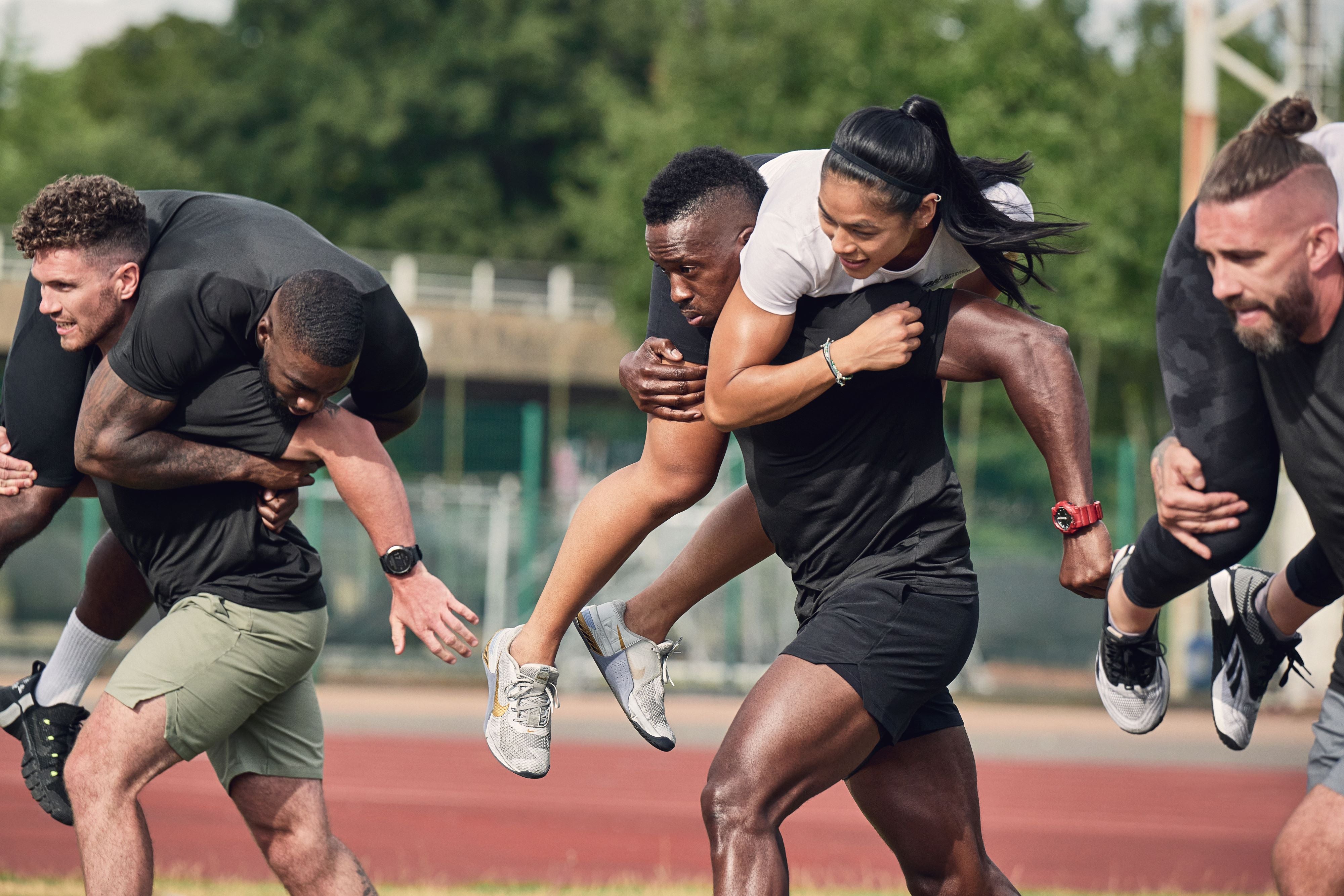At Optimum Nutrition, we like to focus on the three R's of Recovery – Rebuild, Refuel, Rehydrate
Rebuild
Each time you exercise, your muscle is damaged to some extent depending on the intensity and duration. This is an important part of adapting to your training session, allowing the muscle to remodel into a faster and stronger muscle fibre. Protein is the primary macronutrient involved in supporting muscle protein synthesis and maintenance post-exercise.
Refuel
Carbohydrate is the principal energy source used in high-intensity exercise. The primary source of carbohydrate used during exercise is stored in the muscle and is known as glycogen. Physical activity depletes muscle glycogen, which may lead to fatigue and impair performance. Replenishing glycogen stores post-training by ingesting carbohydrates aids in recovery.
Rehydrate
Exercise leads to dehydration through fluid and electrolyte loss. Even a small water loss can significantly decrease performance. This depends on factors such as temperature, humidity, individual sweat rates, and exercise intensity.
Repair – Protein
Protein, broken down into amino acids in the body, provides essential building blocks to damaged muscle, allowing it to repair and rebuild post-training. Consuming high-quality protein around exercise is key. The recommended daily intake for active people is 1.2–2.2g per kg of body weight to support muscle mass.
What type of protein is best post-exercise?
Whey protein is an excellent post-exercise choice because it digests quickly, delivering amino acids to muscles efficiently. While whole food is ideal, it may not always be practical post-workout due to appetite or availability. Optimum Nutrition Gold Standard Whey supports post-training recovery. Casein, a slow-digesting protein, is useful overnight, feeding muscles while you sleep.
How much protein is required?
In addition to daily intake, research shows post-training protein dosing is crucial. About 0.3g of protein per kg of body weight post-exercise optimally supports muscle growth—approximately 20–40g for most. For example, an 80kg individual should consume roughly 24g post-exercise.
Replenish – Carbohydrate
A recovery drink or meal should contain both protein and carbohydrate. Glycogen stores are limited and get depleted during training. Low glycogen increases fatigue and affects concentration. Post-exercise carbohydrate intake is essential to restore energy levels and avoid suboptimal future workouts.
What type of carbohydrate is best post-exercise?
Simple carbohydrates (sugars, fruits, juices, honey) digest quickly and are ideal for replenishing muscle glycogen immediately after training. Complex carbohydrates digest more slowly but also help replenish glycogen stores.
How much carbohydrate is required?
It is generally recommended to consume 0.8–1.2g of carbohydrate per kg of body weight after intense exercise. For example, an 80kg athlete should consume 64–96g of carbohydrate. This can be in a recovery drink or meal. If weight maintenance or loss is a goal, be mindful of total calorie intake.
Rehydrate – Fluids and Electrolytes
A sweat loss equal to 2% of body weight can reduce physical and mental performance. A 5% loss can reduce work capacity by about 30%. Replacing lost fluids and electrolytes is critical. Hydration needs vary based on duration, intensity, temperature, and fitness level.
Before Exercise:
- Drink 500–1000 ml of fluid at least 2–4 hours prior
During Exercise:
- Consume 250–500 ml of fluid per hour
- For sessions over an hour, or with heavy sweating, use a carbohydrate-electrolyte sports drink
After Exercise:
- Replace lost fluids by estimating sweat loss (weigh before and after exercise)
- Drink 1.5 L of fluid for every 1kg lost (e.g., 2kg loss = 3L over the next 3 hours)






